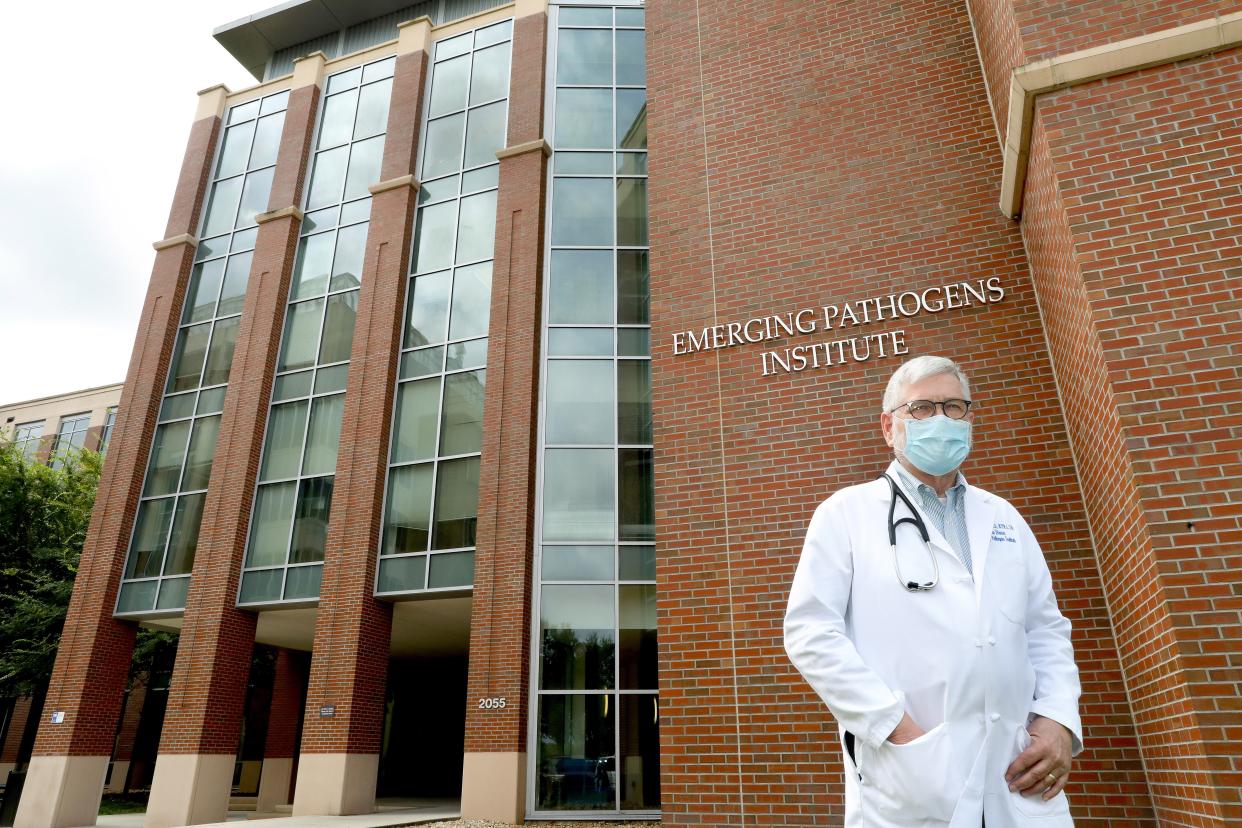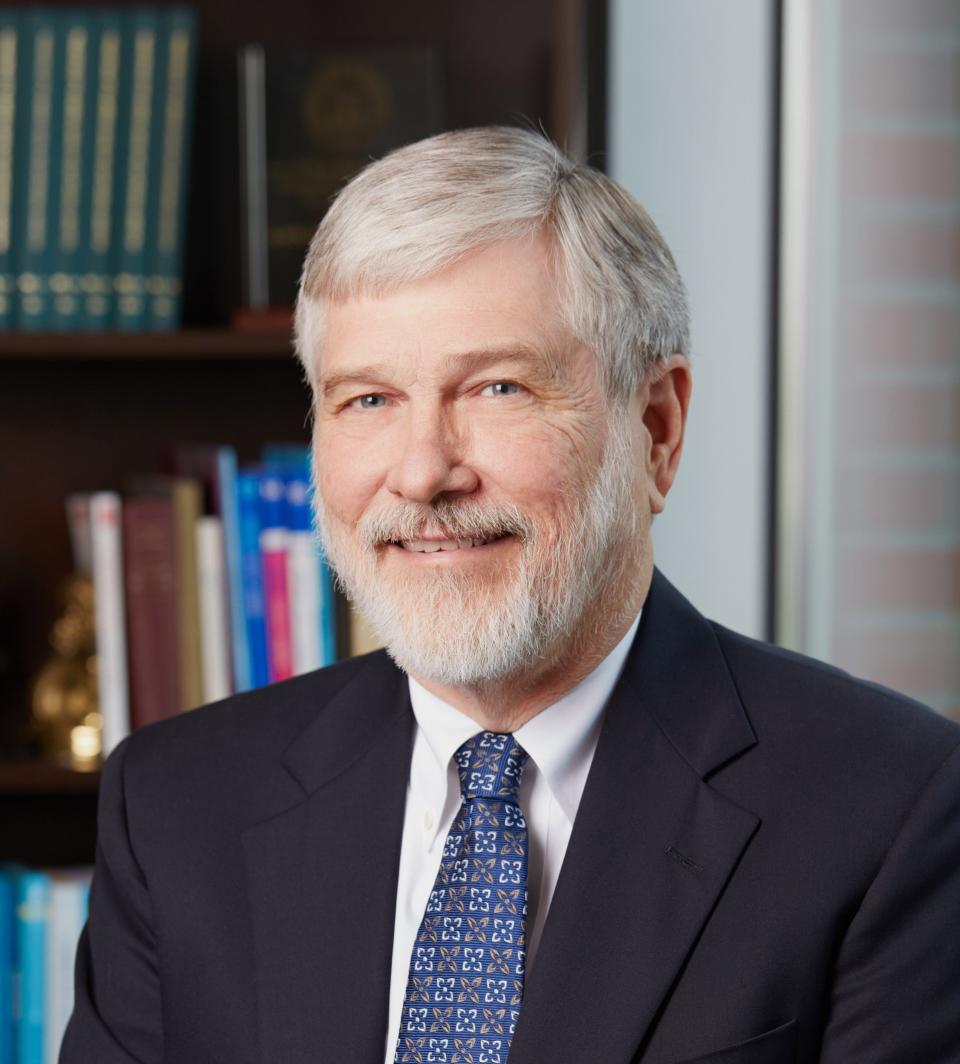UF doctor concerned that politics may diminish public health response to the next pandemic

- Oops!Something went wrong.Please try again later.
A bill advancing in the state Legislature will curtail a portion of the state health department’s power to respond to future pandemics, but has been improved from an earlier version that was significantly more restrictive, according to a top doctor.
As currently written, CS/HB 1487 gives an individual the right to “refuse examination, testing or treatment” during a public health emergency by submitting that refusal in writing, and removes that state health department’s authority to “use any means necessary” to treat an individual, while removing the administration of vaccines as a form of treatment.
The five-page bill closely mirrors SB 1618, which had been filed by state Sen. Clay Yarborough, R-Jacksonville.
The original 12-page bill, sponsored by state Rep. Joel Rudman, R-Navarre; state Rep. Adam Anderson, R-Palm Harbor; and state Rep. Doug Bankson, R-Apopka was significantly more restrictive.
Among other things, it would have required the state health officer to obtain consent from the governor and state Legislature before declaring or continuing a public health emergency and require the vote of two-thirds of each house of the state legislature for “any such actions that affect entire groups or communities.”
Earlier: COVID-19 response: Sarasota Memorial Hospital had better than anticipated survival rate
Most recent COVID numbers: Florida removes more than 32,000 COVID cases from tally without explanation
The severe restriction of public health department authority in that early draft concerned Dr. J. Glenn Morris Jr., director of the Emerging Pathogens Institute at the University of Florida. He was especially worried that provisions in that bill would hinder efforts to control the next pandemic and control the spread of existing diseases, such as drug-resistant tuberculosis.
After reading the revised bill, introduced April 4 and and now in the House State Affairs Committee, he found the legislation less worrisome.
“Virtually all of the really bad language has been removed,” Morris said. “I’m much happier with what I’m seeing now.”

Morris initially raised concern that as COVID-19 numbers continue to ebb, precautions such as testing and tracing virus contacts were being abandoned when instead the state and nation should be preparing for the next epidemic.
“There is a pretty good likelihood there will be a next one – will it be coronavirus or something else I don’t know,” he said. “Unfortunately politics has become the driving force, which is really too bad because I think there’s some basic public health principles that we could be working with to try to minimize the impact when the next one arrives.”
There are a few practices instituted during the height of the COVID-19 pandemic that Morris said should be refined and continued rather than abandoned.
Case reporting, contact tracing and sewage monitoring can all give public health officials a better sense of where COVID-19 is still prevalent, as well as whether a dangerous variant could emerge.
At the least, he suggested, sewage monitoring can be used effectively to safeguard vulnerable populations such as nursing homes, where some of the highest mortality rates were reported.
“There’s still a fair amount of COVID out there,” Morris said. “If all of a sudden COVID picks up and changes its genetic makeup where we get back to where we were with the Delta strains where you get primarily lung involvement and our fatality rates start rising, what are we going to do?”
Omicron, which has produced fewer severe cases, tends to impact the upper respiratory tract, mouth and throat.
Morris noted that masks work and there should be effort to make masks that fit better.
Then there should be consideration of whether to adopt stricter air filtration guidelines, he said.
“Should there be ventilation standards for classrooms or other public places?” Morris said. “We know if we have six air exchanges an hour we can significantly reduce the number of transmission of aerosol borne viruses.”
Sometimes, Morris admitted, protections for public health will step on individual freedoms. For example, he said, smoking in public places has been largely curtailed to protect overall public health.
“Essentially that was a public health issue, which was to say to maintain the health of the larger population we will place restrictions on certain individuals,” Morris said.
“My basic message would be, let's be ready next time and let’s not shoot ourselves in the foot and do stuff that’s going to make it much harder to respond next time.”
This article originally appeared on Sarasota Herald-Tribune: After COVID, Florida doctor wants to keep vigilant for next pandemic

